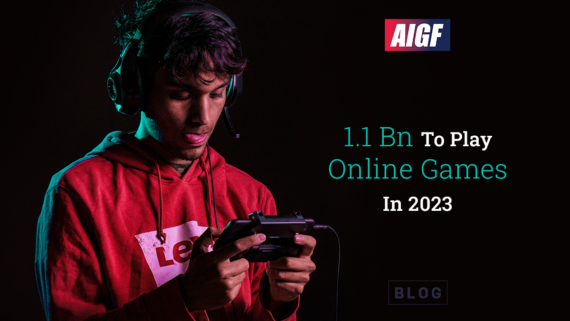The Tamil Nadu High Court last month gave a definite judgment striking down the Tamil Nadu law which precluded online games of skill, as illegal. The Court explained that any limitation on games of skill, regardless of whether online or offline, should be narrow and the state should attempt to regulate, rather than boycott.
Regulation And Not Prohibition Leads To Better Outcomes: Online Skill Gaming Industry
The Karnataka Police (Amendment) Bill, 2021, was postponed in the Legislative Assembly on September 17 to boycott online gaming or betting by revising the Karnataka Police Act of 1963, with the greatest detainment of three years and punishment up to ₹1 lakh.
Home Minister Araga Jnanendra presented the Bill, which intends to ‘boycott online games, including all types of betting or wagering, including the type of tokens valued in terms of money, paid previously or after issue of it. It prohibited electronic means and virtual currency, electronic exchange of assets regarding any games of chance’.
17th September 2021: Most of India’s unicorns are situated in Bengaluru because it has reformist approaches for new companies, regulatory certainty, and a youthful and skilled labor force. Nonetheless, the Karnataka government might hamper this picture of Bangalore and most likely the general gaming environment of the nation by presenting a law of not banning online real money skill gaming in its State.
The lawful statute emanating from the Supreme Court for 60 years is exceptionally clear, that games of skill are not gambling, and presenting games of skill is an authentic movement ensured under the Indian Constitution. This has been emphasized at different times by different high courts, including the Karnataka High Court.
Notwithstanding the clear law and the decisions, different states including Tamil Nadu have attempted to boycott skill-based online games. The Tamil Nadu High Court last month gave a definite judgment striking down the Tamil Nadu law which precluded online games of skill, as illegal. The Court explained that any limitation on games of skill, regardless of whether online or offline, should be narrow and the state should attempt to regulate, rather than boycott. The Court likewise descended vigorously on the State government for passing the law as a populist measure ahead of the pack up to state elections, without adhering to the established law. The Court likewise expressed that Entry 34 of the State List under the Constitution, from where the Karnataka amendment follows its force, can’t be utilized to control games of skill, and must be utilized to boycott/manage games of chance.
Commenting on something very similar, Mr. Roland Landers, CEO, All India Gaming Federation states, “India is the fifth biggest online gaming market around the world and skill-based gaming, dawn sector, is bringing forth an expanding number of unicorns inside the country, particularly Karnataka. The sector has been a solid monetary supporter of the Indian economy in any event, during an exceptional time of lockdown, and is additionally expected to produce incomes over $ 3 billion by 2025. The move by the Karnataka government in postponing the Karnataka Police (Amendment) Compliance Act, 2021 act can be viewed as a difficulty to the state’s standing of being a tech-center and start-up capital.”
Skill-based gaming couldn’t be compared with gambling, and restricting isn’t an answer. Explaining this further Justice Vikramajit Sen, a previous Judge of the Supreme Court and previous Chief Justice of the Karnataka High Court, added, “The Indian regulatory framework has differentiated between games of skill and games of chance in India. Since games of skill might include an entry fee they can’t be viewed as gambling. Games of chance are viewed as gambling as it includes luck instead of skill and hence it is explicitly denied by the law, wherein games of skill are considered legitimate across most states including digital and online. The sector needs the help of state governments to promote drives towards mindful gaming and recognition of the AIGF ‘Self-regulation Framework’. AIGF and its advisory members anticipate a chance to engage stakeholders inside the state government to make an industry representation on the matter.”
The Karnataka Police Act, by the set down law, restricted games of chance. Notwithstanding, presently in the grab of including online gambling inside its ambit, the government is additionally attempting to slide in games of skill. The draft bill will likewise disallow games like online chess, archery, online quiz games, other Indian games, all-digital variants of traditional games, incorporating games included for Asian Games and Olympic Virtual Series. In the setting of Asian Games reporting that 24 medals will be granted for eSports in the following year’s version, this law can be extremely hazardous for the professional gaming players as this might influence the vocations and pay off these gamers living in that state.
With genuine concerns approaching from the Karnataka Government’s move to boycott online gaming, PK Misra, President Players’ Association – AIGF and former senior IAS said, “The move will influence the online skill-based gaming sector, stopping player’s right to procure their occupation. There is no clarity on the extent of this law, and we stay in steady dread of the players’ vocation being prohibited whenever without earlier information or discourse.”
Leading the drives of the Players’ relationship at AIGF, Mr. Misra has stood firm on a key position in Indian bureaucracy. Giving his demonstrated direction and bringing to the table his decades of experience and a sharp comprehension of the business, the AIGF, and its self-regulatory points of view, the targets guaranteeing that the development is comprehensive and observed routinely for the players and the business.
Mr. Misra further added, “Around 10-12% of India’s gaming community is situated in Karnataka, and a considerable lot of these players who contend at the global level are afraid for their occupations as well as their capacity to seek after their dreams about becoming proficient players on worldwide stages. I unquestionably trust the state government draws an unmistakable differentiation among gambling and games of skill. Since 1957, the Supreme court has emphasized games of skill as a genuine business secured under Article 19(1)(g) of the Indian Constitution, additionally upheld by the Karnataka High Court in various decisions.”
As the most established online skill gaming industry body, AIGF has been at the front line of guaranteeing worldwide accepted procedures for its stakeholders through the self-regulation skill games contract that covers all parts of the online gaming business, administered by an advisory of experts. AIGF and every one of the expert players truly trusts that the government of Karnataka is paying attention to the worries, and will guarantee that skill gaming isn’t influenced by this law.
Credits: TechnoSports











Comments
Comments are closed.